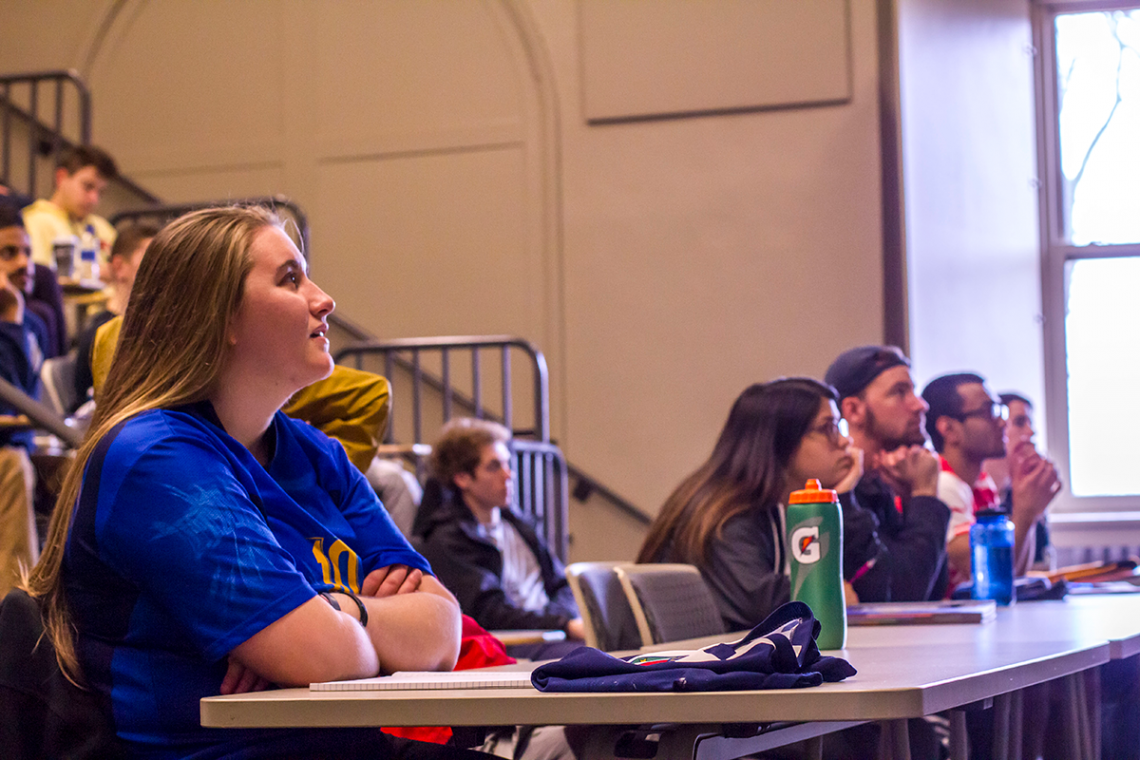Five Things to Know About Great Teaching

Good teachers aren’t born that way, even the best ones admit that it took years before they felt comfortable in front of the classroom. Experience helps, but mentoring from other teachers is a critical component.
On Thursday, three celebrated Duke instructors opened up about their teaching experiences before an audience of more than 40 junior faculty. The session, “What I Wish I Had Known About Teaching (at Duke),” was sponsored by Duke Learning Innovation.
Here are five takeaways from the session:
 Let students know it’s OK to struggle. It’s part of learning
Let students know it’s OK to struggle. It’s part of learning
“I wish I had known when I started about the enormous amounts of pressure students feel, and many struggle with imposter syndrome,” said Minna Ng, faculty director for the David M. Rubenstein Scholars Program, and assistant professor of the practice in psychology and neuroscience. Students need to know that it’s OK to fail at times, “Or you don’t really learn as much.”
Students “also have so much to give, they bring so much creativity, so much passion,” said Len White, an associate professor in neurology and associate director of the Duke Institute for Brain Sciences. Learning how to use that passion, energy and creativity is important.
In addition, students have a “deep need to find somebody to connect with personally,” added Jules Odendahl-James, director of Academic Engagement, Arts & Humanities for the Academic Resource Center, and an instructor of writing and theater.
 Students get anxious. Don’t ignore that.
Students get anxious. Don’t ignore that.
“You have to make sure it’s not a crisis,” in which case you should call 911 or refer a student to Duke’s resources like CAPS (Counseling and Psychological Services), White said. “Also, I’d encourage you to reach out to a student’s academic dean. We’re not in it alone and we shouldn’t be. I think students want to know that you as a faculty member, you are for them … (they) want to know you are not only for their academic success, but for their well-being. Sometimes you need to comfort them, a student needs to know we are in this together and we’ll get through it.”
Also try to find out what’s causing their anxiety, advised Odendahl-James. “It’s information you sometimes need to identify and be able to make a change,” she said.
Added Ng: “Giving the student a pass on the exam to try to help them with anxiety might not be the best thing. Occasionally you need to channel them to the right resource,” i.e., counseling and/or an academic adviser.
 To avoid problems, be clear in advance about expectations and grading in innovative and entrepreneurial courses, such as a Bass Connections project.
To avoid problems, be clear in advance about expectations and grading in innovative and entrepreneurial courses, such as a Bass Connections project.
“I think communicating expectations early is important,” White said. “Think about an entrepreneurial class like a traditional class -- have a syllabus, a rubric.”
“I think if we explain to students, who are incredibly bright and intelligent and thoughtful, ... be really transparent about the reasoning for your grading system,” Ng said.
 Summer sessions and other short-term classes require different approaches.
Summer sessions and other short-term classes require different approaches.
“Have frequent assessments,” White said. “The more frequent, the lower the stakes. ...” He also said moving to a team-based learning system about a decade ago has helped students handle the greater intensity in his short sessions.
It’s also helpful to know why a student is taking a summer course, added Odendahl-James.
 Know how much of yourself you should give in the classroom, including emotionally
Know how much of yourself you should give in the classroom, including emotionally
“Just be very transparent,” Ng said. “I feel like students expected me to be more maternal, so it turns out that smiling at them and being patient works really well,” she said to laughter. “Just be human and say you’re about to celebrate your 21st birthday!”
“I try to normalize the fact that we are all human beings here,” said White, who, for example, often talks about his grandparents at the start of a semester.